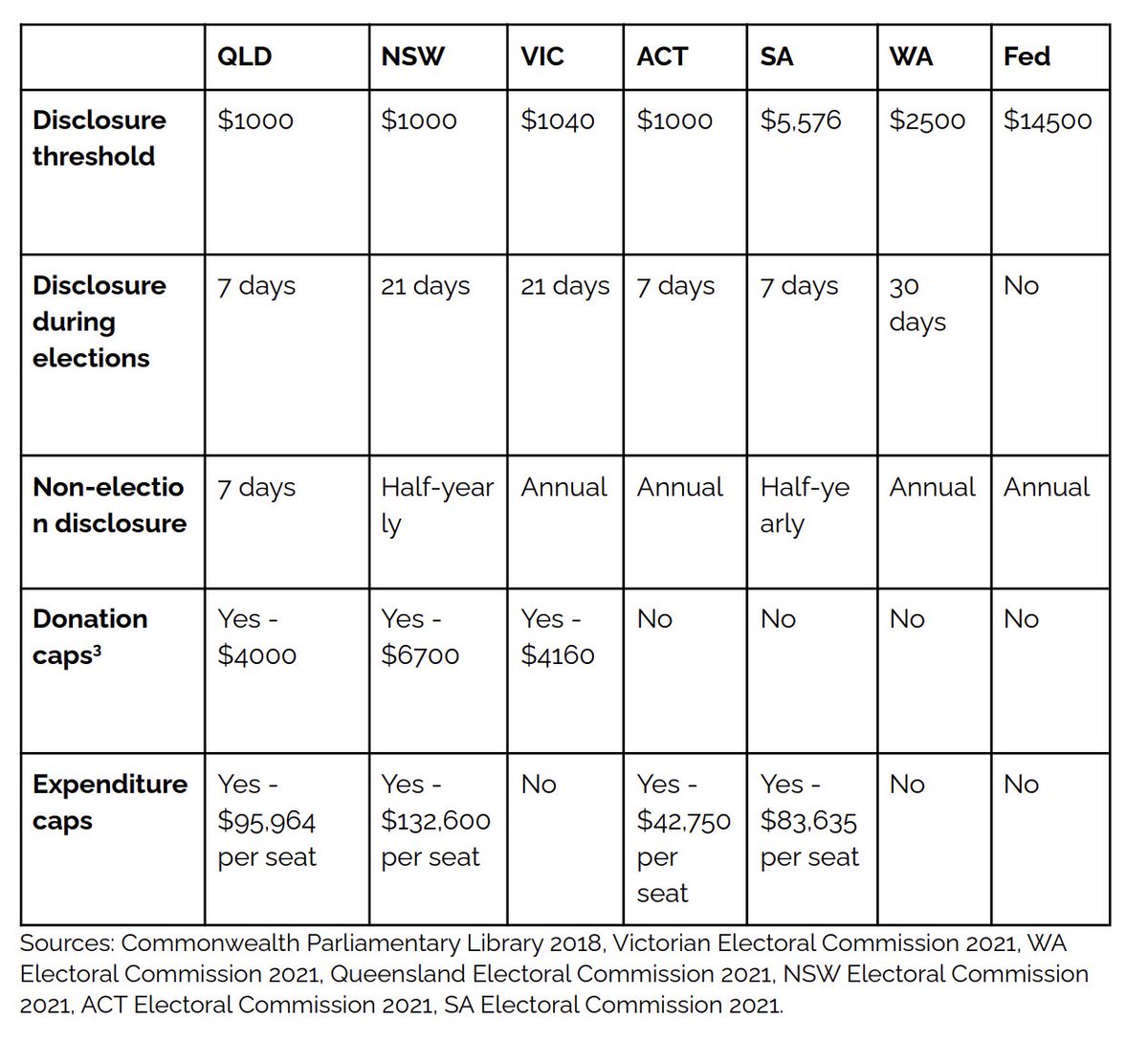
Last year we created donation profiles for each political party with data ranging from 1998/99-2019/2020. This thread has some key screenshots and links to each corresponding party.
The Coalition:
(buff.ly/3HjHZHw )
1/
#auspol #whopaysthepiper

The Coalition:
(buff.ly/3HjHZHw )
1/
#auspol #whopaysthepiper


A key takeaway from our research was: what is an Associated Entitiy? Here is a thread from last year on our analysis of the subject here:
buff.ly/3Y4jRiY
5/
buff.ly/3Y4jRiY
5/
In a democracy where one person equals one vote the big questions we have is: how much influence does a donation get? And should donations exert influence on decision making?
6/
6/
• • •
Missing some Tweet in this thread? You can try to
force a refresh

















